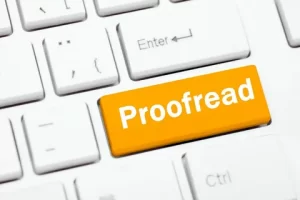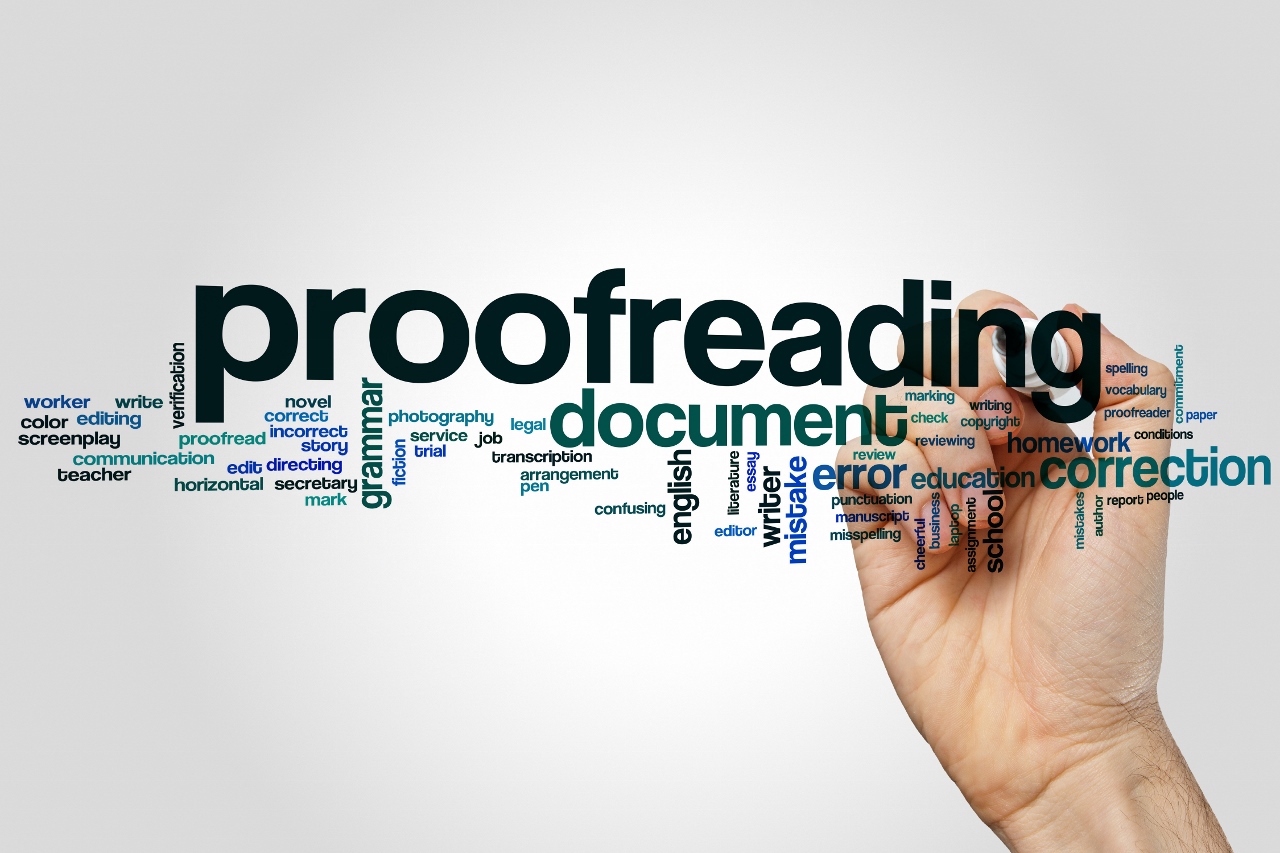Introduction:
Attention all graduate students and researchers! Are you tired of submitting your thesis or research paper only to receive a less-than-stellar grade? Do you feel like you’ve put in countless hours and effort, but still can’t seem to get it quite right? Look no further because flawless thesis proofreading is the key to success in your research career. In this blog post, we’ll explore why proofreading is essential and how it can make all the difference in achieving academic excellence. So grab a cup of coffee and let’s dive into the world of perfecting your writing!
Why Flawless Thesis Proofreading is Important
As a researcher, you know how important it is to produce quality work. Your research career depends on it. But did you know that one of the most important aspects of producing quality work is proofreading?
Yes, proofreading your work is essential to ensuring that your research is error-free and polished. After all, even the best research can be undermined by careless mistakes. And in today’s competitive academic landscape, you can’t afford to let anything stand in the way of your success.
That’s why choosing a professional proofreading service like Flawless Thesis proofreading is so important. We specialize in providing high-quality, thorough proofreading services for researchers at all levels. We’ll catch any errors or typos in your work, so you can focus on what’s really important – your research.
Don’t let careless mistakes stand in the way of your success. Choose Flawless Thesis for expert proofreading services and get peace of mind knowing that your work is error-free.

Benefits of Professional Thesis Proofreading
There are many benefits of professional thesis proofreading. Perhaps the most important benefit is that it can help you avoid costly mistakes in your research. Other benefits include:
1. It can improve the clarity of your writing.
2. It can help you spot errors that you might otherwise overlook.
3. It can give you peace of mind, knowing that your work is error-free.
4. It can make a good impression on your supervisor or committee members.
5. It can help you get published in prestigious journals.
6. It can save you time and money in the long run.
Steps for Proper Thesis Proofreading
No matter how well-written and researched your thesis is, if it contains errors, it will reflect poorly on your work. That’s why proofreading is essential. Proofreading allows you to catch any errors that may have been missed during the editing process, ensuring that your thesis is error-free.
There are a few things you can do to ensure that your proofreading session is effective:
Read your thesis aloud. This will help you catch any errors that you may not have noticed when reading silently.
Take a break before proofreading. Once you’ve finished writing, give yourself some time to rest before starting the proofreading process. This will help you approach your work with fresh eyes, making it easier to spot errors.
Use a spell checker. A spell checker can be a helpful tool in catching spelling mistakes. However, don’t rely on it too heavily – it won’t catch all errors, and it may even introduce new ones.
Read backwards. Start at the end of your document and work your way back to the beginning. This will help you focus on each individual word, making it easier to catch any errors.
Tips for Effective Thesis Proofreading
1. Don’t proofread your thesis alone. Ask a friend or colleague to read it for you, or hire a professional proofreader.
2. Read your thesis aloud. Thesis proofreading will help you catch errors that you might otherwise miss.
3. Carefully review all the feedback you received on your drafts, and incorporate it into your final version.
4. Give yourself plenty of time to proofread. Don’t try to do it all in one sitting; take breaks and come back to it fresh.
5. Pay attention to details like spelling, grammar, and punctuation. These can make a big difference in how well your thesis is received.
6. Use a spell checker, but don’t rely on it completely. It can’t catch everything, so you still need to proofread carefully yourself.
7. Print out a hard copy of your thesis so you can mark up changes with a pen or pencil. This can be helpful for seeing errors that you might miss on screen.
8. Take your time, and don’t rush through the proofreading process. It’s important to get it right!
Challenges of Self-Proofreading vs. Hiring a Professional Editor
One of the most common challenges students face when writing a thesis is proofreading and editing their work. This process can be daunting, especially if you are not used to doing it on your own. However, there are some key differences between self-proofreading and hiring a professional editor that you should keep in mind.
Thesis proofreading can be time consuming and difficult, as you have to catch all of your own mistakes. This can be frustrating, and often leads to students missing errors in their work. In addition, it can be hard to know what changes to make in order to improve your paper without outside help. Hiring a professional editor, on the other hand, can save you time and stress. Professional editors are experienced in proofreading and editing academic papers, so they will be able to spot errors that you may have missed. They will also provide valuable feedback on how to improve your paper. Overall, hiring a professional editor is the best way to ensure that your thesis is error-free and ready for submission.

Conclusion: How Flawless Thesis Proofreading Can Help Boost Your Research Career
A thesis is a crucial component of any research project, and it is important that it be free of any errors that could potentially undermine the quality of the work. This is where proofreading comes in. Proofreading can help to ensure that your thesis is error-free and ready for submission. In addition, proofreading can also help to improve the overall clarity and coherence of your work.
Proofreading your thesis can be a daunting task, but it is one that is absolutely essential for ensuring the success of your research career. Thankfully, Thesis proofreading help with proofreading your thesis. One option is to hire a professional proofreader to review your work before you submit it. Another option is to use a software program designed specifically for proofreading academic documents. Whichever route you choose, taking the time to ensure that your thesis is error-free will pay off in the long run.
